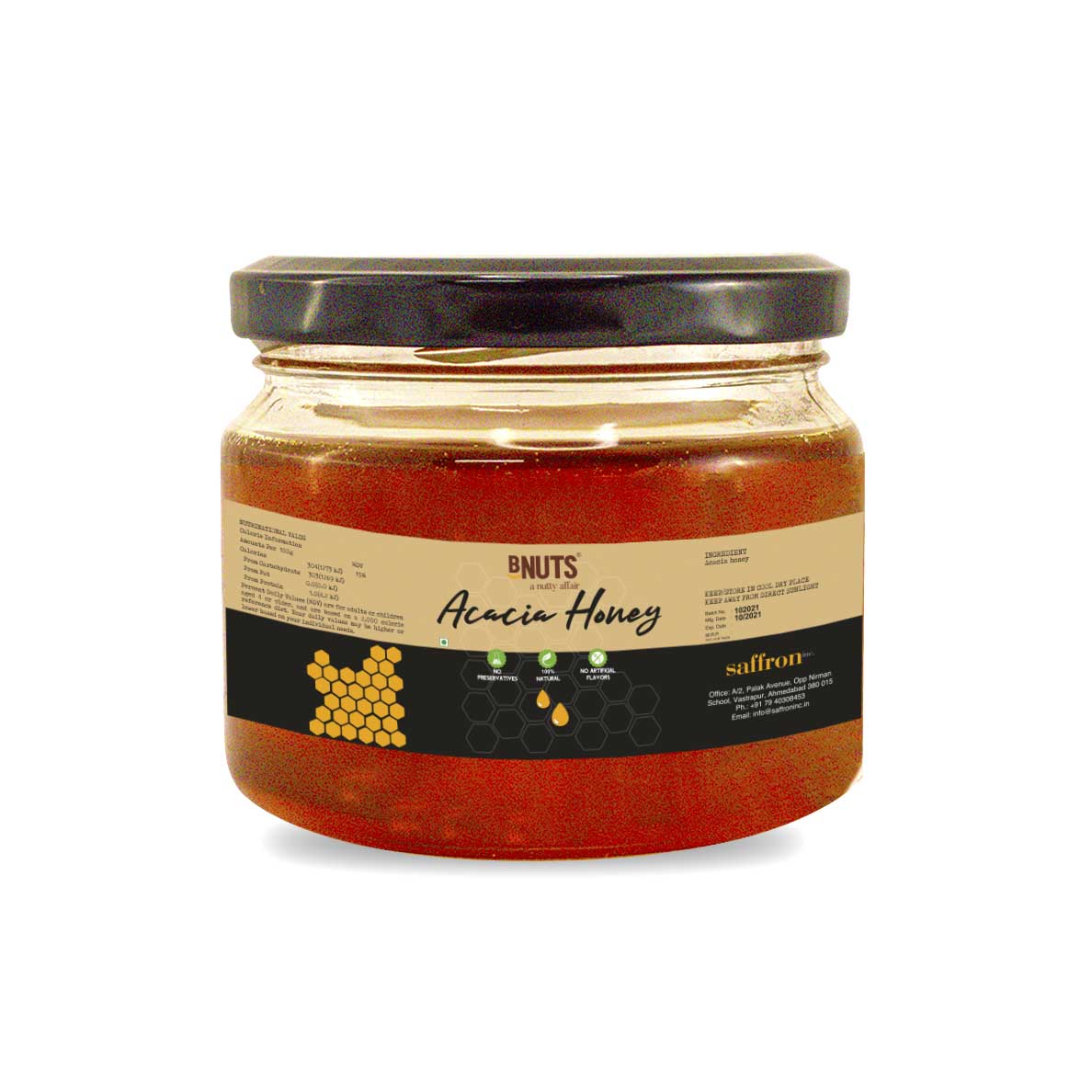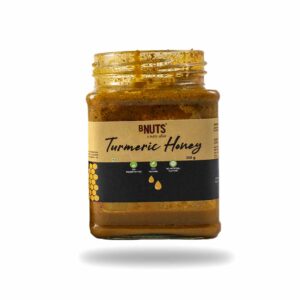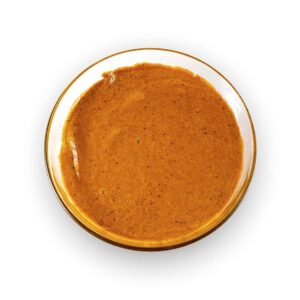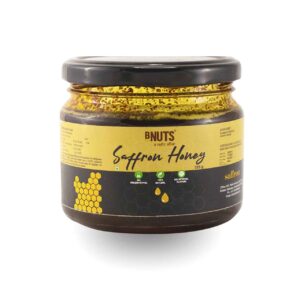Acacia Honey 350g
₹400
Honey is food made by bees for bees, but many people also enjoy it. Humans have prized honey for its sweet taste for many thousands of years. Some researchers say honey is more than a sweetener. It may also have health benefits, though there is little evidence for some of its medicinal uses.
In stock
Description
Nutrition Information
Honey is basically sugar. It is actually higher in calories than the typical white sugar used for cooking or baking. Because it is sweeter, you may need less if you’re using it as a substitute. Also, honey adds flavor that white sugar does not have.
One tablespoon of honey contains:
- Calories: 64
- Protein: 0 grams
- Fat: 0 grams
- Carbohydrates: 17 grams
- Fiber: 0 grams
- Sugar: 17 grams
Honey contains some vitamins and minerals in trace quantities, including small amounts of:
- Iron
- Zinc
- Potassium
Raw honey is not superior to processed honey in nutrition or health benefits. Researchers found that processing does not affect honey’s nutritional value or antioxidant levels.
Potential Health Benefits of Honey
Although it is not a rich source of nutrients, some people regard honey as a health food. There is little or no evidence for many common claims about honey, but research supports some of the following:
Anti-inflammatory Effects
Honey contains antioxidants, which can protect the body from inflammation. Inflammation can lead to a variety of health issues, including heart disease, cancer, and autoimmune disorders. One study discovered that antioxidants in buckwheat honey were detectable in blood plasma, showing that eating honey could enhance antioxidant activity in the body.
Cough Relief for Children
Health authorities do not recommend over-the-counter medications to treat young children ’ s coughs and colds. Some parents may look for natural remedies. In one study, two teaspoons of honey relieved children’s nighttime cough and allowed them to sleep. However, doctors do not recommend this practice for children less than a year old.
Potential Risks of Honey
Honey is a safe food for most people, but not for all. Here are some potential risks of eating honey, including raw honey:
Botulism in Infants
You should not give honey to infants under 12 months. Honey contains dust particles that may carry spores of the bacteria that causes botulism. Infants lack resistance to many germs, and they could get very sick. Using honey in cooking food for children should be safe, as heat destroys most bacteria.
Allergies
Those who are prone to allergies should be careful about eating honey. Although honey allergies are rare, they do occur. Perhaps this is due to bee pollen in the honey. Bee pollen is a mixture of pollen and digestive enzymes from bees. It can trigger a serious allergic reaction.
Some historical evidence estimates that humans have used honey for over 8,000 . During ancient times, people would have used raw honey, but today, most people use pasteurized honey.
Additional information
| Weight | 325 g |
|---|
Only logged in customers who have purchased this product may leave a review.






Reviews
There are no reviews yet.